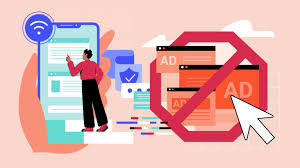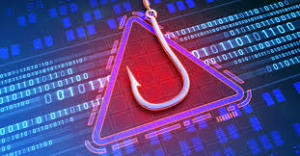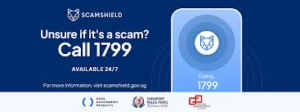It’s common knowledge that you shouldn’t wire money to an online Nigerian prince. However, scammers have a variety of other tactics that can be less obvious.
According to the Federal Trade Commission, fraud cost consumers a staggering $10 billion last year alone. You can protect yourself from becoming a victim by familiarizing yourself with common scams and taking straightforward steps to safeguard your personal information. Continue reading to discover how to recognize frequent banking scams and secure your finances.
Image may be NSFW.
Clik here to view.
10 Frequent Banking Scams
By understanding the tactics used by fraudsters, you can stay ahead of their schemes.
Check-Cashing Scams
You might receive a check along with a request to deposit it and send a portion back to the sender. Although the check may initially appear to clear, your bank may later find out it’s fraudulent, leaving you out of pocket after you’ve already transferred real funds to the scammer. If someone claiming to be a “potential employer” or a secret shopping service asks you to send money based on a check they provided, disregard their request and dispose of the check immediately.
Check Washing Scams
Fraudsters can intercept envelopes with checks in the mail, apply chemicals to alter the check’s details, such as the payee or amount. To safeguard against this type of fraud, choose checks equipped with security features, avoid leaving any sections blank, refrain from allowing your mail to accumulate in your mailbox, and utilize black gel ink for writing checks, as it is more resistant to washing.
Phishing Scams
In a phishing scheme, you might receive a text or email that appears to come from a legitimate source, like your bank or utility provider, requesting that you update your personal information. If you disclose your details, scammers could gain control of your account. Always avoid clicking on links from unsolicited communications and instead call your bank’s official customer service number to confirm any requests.
Image may be NSFW.
Clik here to view.
Automatic Withdrawal Scams
You may encounter an unexpected message or phone call claiming you’ve won a prize. To claim your winnings, they ask for your bank account and routing numbers. Once they acquire this information, the scammer can set up recurring automatic withdrawals, leading to significant financial loss beyond just the disappointment of a nonexistent prize.
Advance Fee Fraud
This type of scam requires you to pay an upfront fee with the promise of receiving money or services in return. Some of these scams are quite obvious—like the notorious “Nigerian prince” con—while others may be more cleverly disguised.
For instance, if you’re facing financial difficulties, you might find yourself tempted by companies offering assistance for a fee. Don’t allow scammers to exploit your situation. There are numerous legitimate options available to help you manage credit card debt, such as reaching out to trustworthy non-profit debt counseling organizations.
Fraudulent Banking Websites and Applications
Scammers can effortlessly create counterfeit websites or applications that mimic those of genuine banks to deceive you into sharing personal details or transferring funds. Always confirm that the URL corresponds to your bank or credit union before clicking any links. A helpful resource for this is the FDIC’s BankFind tool. When downloading a mobile banking app, ensure it comes directly from the Apple Store or Google Play Store.
Impersonation Scams by Government AgenciesImage may be NSFW.
Clik here to view.
Government entities such as the IRS and Social Security Administration usually reach out to you through physical mail. If you receive a phone call or text from someone claiming to be a government representative, refrain from responding or providing any information, even if the message appears authentic. Scammers can easily fake legitimate phone numbers.
Employment Scams
Genuine job listings will never ask for your banking details or require payment for products and services to begin employment. Before submitting an application, check the company’s name with the Better Business Bureau to avoid falling into a scam.
Charitable Fraud
Scammers often exploit your generosity, particularly in the aftermath of disasters like earthquakes or hurricanes. Instead of reacting to unsolicited donation requests, conduct your own research to identify a credible local charity to ensure your contributions genuinely support the intended cause.
Identity Theft
Identity theft manifests in various ways, ranging from fraudsters indulging in reckless spending using your debit card details to the misuse of your Social Security number for opening bank accounts under your name. To safeguard yourself against such theft, it’s essential to consistently monitor your credit report and bank statements. If you notice any irregularities, reach out to your bank without delay. Additionally, enrolling in an identity theft protection service can provide you with extra security and reassurance.
Image may be NSFW.
Clik here to view.
Preventing Bank Account Scams
Bank scams can be deceptive, but there are straightforward measures you can take to protect yourself.
Recognize warning signs. Stay alert to unexpected messages, urgent requests that seem pressing, and deals that sound too good to be true. If something feels off, trust your instincts.
Protect your personal data. Safeguard sensitive information such as account numbers and login details. Remember to shred documents that contain confidential information before throwing them away.
Image may be NSFW.
Clik here to view.
Use robust passwords. Create distinct passwords using a mix of letters, numbers, and special characters. Steer clear of easily identifiable information like your address or birthdate, and refrain from reusing passwords across different sites or applications. A password manager can assist in organizing your credentials securely.
Activate multi-factor authentication. While a fraudster may manage to decipher your password, duplicating your fingerprint or facial recognition is significantly more challenging. Multi-factor authentication enhances security by requiring these biometric verifications for access.
Steer clear of public Wi-Fi. Refrain from accessing your online or mobile banking through unsecured Wi-Fi connections; always use your protected home network instead.
Keep an eye on your financial statements and credit history. Regularly check your transaction history and request your credit report periodically throughout the year to detect any unusual activities.
Request your ChexSystems reports. If you suspect that someone may have opened a bank account in your name, obtain your ChexSystems disclosure and consumer score report to check for any adverse entries associated with you.
Image may be NSFW.
Clik here to view.
Consider an identity theft protection service. While the top-tier identity theft protection and monitoring services come at a cost, the peace of mind they provide can be invaluable.
Steps to take if you suspect banking fraud
If you think you’ve been a victim of bank fraud, here are some actions to take to mitigate the impact.
Reach out to your bank. Contact your bank or credit union right away to help reduce your losses. Reporting the issue promptly often decreases your potential financial liability. Make sure to assess all your financial accounts, including credit cards, to ensure they are secure as well.
Submit a complaint. Get in touch with the FTC to file a complaint and obtain a recovery strategy.
Report the incident to the authorities. Although local law enforcement may have limited capabilities in addressing scams perpetrated by individuals far away who have access to your account details, filing a report serves as documentation that fraud took place and that you made efforts to mitigate it. For instance, if your personal or financial information is misused for money laundering, having a police report can help establish that you were not complicit.
Image may be NSFW.
Clik here to view.
Change your login credentials. Revise the passwords for all your financial accounts and think about updating them for other platforms as well, such as your email and social media accounts.
Establish fraud and security notifications. Alongside monitoring your credit report more diligently, consider setting up fraud alerts with all three major credit reporting agencies—Equifax, Experian, and TransUnion—for added protection. It’s also prudent to register a security alert with ChexSystems, which will inform you of any attempts to create new accounts under your name.
Protect your bank accounts from fraudsters. As long as you possess funds, there will be criminals eager to find ways to take them from you. Fortunately, there are numerous strategies to counter their efforts. By remaining cautious and adopting a mindset of vigilance, you can secure your hard-earned money from falling into the wrong hands.
Maxthon: Your Navigator in the Digital Landscape
As the online environment continues to evolve at a rapid pace, navigating the Internet can feel like embarking on a thrilling journey into uncharted territories. To ensure a seamless and secure experience online, having a reliable web browser is crucial.
Image may be NSFW.
Clik here to view.
Maxthon browser is compatible with Windows 11
Maxthon’s Private Browser for Superior Online Security
For those using Windows 11, Maxthon stands out as an exceptional choice. Its seamless compatibility with this cutting-edge operating system unlocks a variety of innovative features designed to enhance your browsing experience.
Maxthon browser support for Windows 11
Prioritizing user safety and privacy, Maxthon provides an extensive suite of privacy features, enabling users to browse the web without concerns while protecting their digital identity.
What sets Maxthon apart is its commitment to delivering robust functionalities completely free of charge. Its intuitive interface ensures that it is user-friendly for everyone, empowering individuals to navigate the online world with assurance.
With Maxthon by your side, you’re not merely browsing; you’re embarking on a secure digital adventure.
The post Safeguard Your Finances By Recognizing These Banking Scams appeared first on Maxthon | Privacy Private Browser.